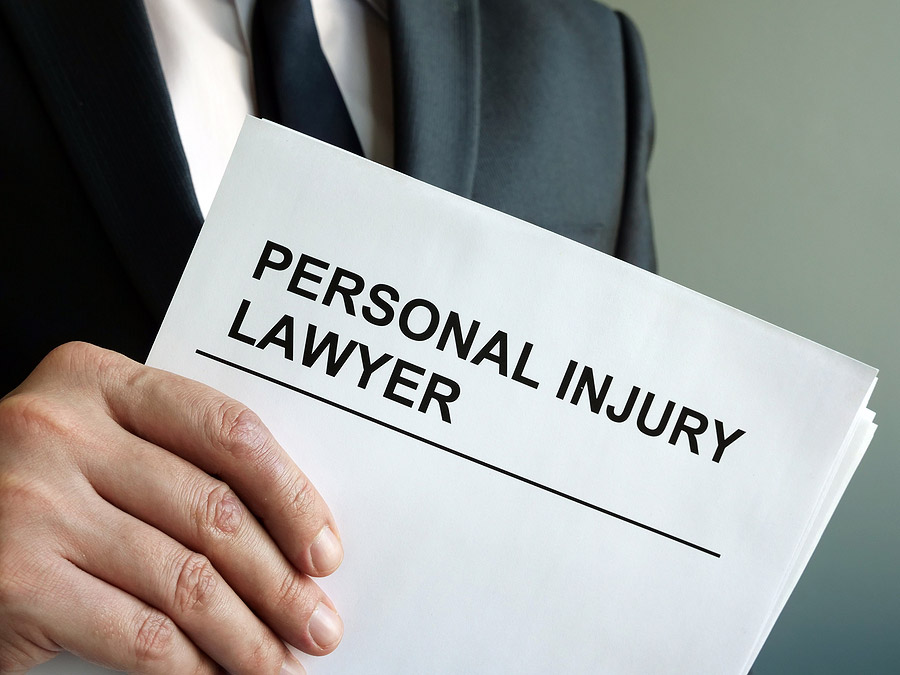An attorney can investigate your accident to determine the responsible parties. They deal directly with liability insurers, their investigators, and attorneys. When you reach maximum healing, your attorney can present your damages and ultimately negotiate your settlement.
If the parties reach a negotiation stalemate, they attempt resolution through an Alternative Dispute Resolution process. When necessary, you want an attorney who is willing to file a lawsuit and try your case.
When you decide to work with an attorney, trust them to protect your legal rights. This is easier to do when you have examined your options and made an informed decision.
All Attorneys Are Not The Same
When you sustain injuries, friends, family members, and total strangers offer attorney recommendations. You see aggressive legal ads on TV. If you search for an attorney online, law firms often track you, and their legal ads appear wherever you go on the internet.
If a police report adds your accident report to the public record, each day the USPS stuffs your mailbox with a steady stream of attorney solicitations.
Before you contact or agree to work with any of these attorneys, understand that:
- Most law firms have practice specialties: personal injuries, real estate, criminal law, etc.
- Some attorneys may attempt to take your injury case even when they do not have a strong personal injury case track record.
- Some attorneys are not very good at investigating, evaluating, or negotiating injury cases.
- Some large firms hand off simple injury cases to young associates who need experience.
Immediate Legal Representation
A personal injury attorney works more efficiently when you involve them in your case as soon as possible. If you are hospitalized or unable to handle attorney contacts or inquiries on your own, ask a friend or family member to help.
To evaluate the available evidence, your attorney needs to investigate your case as soon as possible after your injury occurs.
After any type of accident, important evidence begins disappearing or changing.
- Drivers gradually begin to forget what happened.
- Property owners correct defects that caused injuries.
- Vehicle owners repair or total their damaged cars or trucks, often altering or eliminating physical evidence.
- Communities clean up debris in the street and repair faulty traffic control devices.
- Witnesses go off the radar or change their minds about offering statements.
- Over-the-road truckers go back to their home states and sometimes fail to cooperate.
Finding The Right Personal Injury Attorney
If the idea of searching for an attorney feels somewhat intimidating, remember you are the one in charge. You get to decide what is important to you and who you want to handle your case. As you begin your search, think in terms of finding a trusted partner. That is exactly what you need to do. When you find the right personal injury attorney, you form a working relationship that often lasts for years.
You share numerous personal details with your personal injury attorney. They get to know you and your family, and they stay involved in your life throughout your healing and claim-handling process. Attorneys evaluate liability and injury issues. They monitor your recovery, evaluate your injury claim, and intervene on your behalf with responsible parties, liability insurers, and defense attorneys.
You want an attorney who meets your most critical needs, so you must decide what is important. You must prioritize your needs and keep them in mind as you begin your search.
Search For The Right Attorney
When you sustain an injury, do not contact your real estate attorney friend. They cannot help you unless they give you a referral to a personal injury attorney.
Find An Attorney Who Handles Your Type Of Claim
The Texas Board of Legal Specialization lists 25 distinct legal practice specialties. You need an attorney with experience handling your specific type of personal injury claim.
For example, some different types of claims include:
- Car Accident
- Truck Accident
- Motorcycle Accident
- Premises Liability Incident
- Dog Bite Injury
- Slip and Fall
- Wrongful Death
Organize Your Search
If you feel comfortable hiring an attorney based on a personal recommendation or even a billboard, it is your decision. If you need more information, you should conduct an informal search to find a personal injury attorney who meets your needs.
Here are a few tips to help you organize your search.
- Make a list of personal attorneys: Ask your friends or family members for referrals. Consider online posts, TV commercials, and mail solicitations. When your injury information is public, you may receive brochures, flyers, letters, postcards, and other forms of attorney communication.
- Check out attorney websites: Law firm websites tell you a lot about their personal injury practice. Some post information about their specialties and their case results. If you read attorney bios, you get a feel for their personality. Some lawyers post their client evaluations.
- Read online attorney reviews: If you find an attorney you want to know better, take a look at their online reviews. Google and other platforms encourage consumers to share their experiences and give one-to-five star ratings. You will find these reviews on Google, Yelp, Facebook, and other sites.
- Consult with attorneys: Before you sign a representation agreement, call prospective attorneys. Some law firms ask for your information and tell you immediately whether they want to know more about your case. Other law firms ask for preliminary information and schedule a free initial consultation. Until you are ready, they do not expect you to commit to pursue your claim or sue the other party.
- They also offer consultation alternatives, so you do not necessarily have to visit their office.
- Video conferences
- Phone consultations
- In-patient hospital room meetings
- In-home meetings
- Office consultations
Ask Questions That Are Important To You
When you find a potential attorney, asking questions is the best way to narrow your search. You have a right to know the answers before making a decision. If a lawyer chooses not to respond, consider how that affects you. Decide if you want to work with a person who does not communicate the way you need them to.
Here are a few questions to consider.
You can find some of the answers ahead of time by checking out a law firm’s website.
- What type of cases do you handle?
- How long have you been handling personal injury claims?
- How often do you handle serious injury claims?
- Can I see your case results?
- May I see your client reviews?
- How often do you negotiate injury settlements?
- Do you ever mediate injury claims?
- If my case goes to trial, will you present it in court?
- Has your law firm received any local or national recognition?
- How much do I pay you for handling my case?
- Does your firm comply with fee rules in the Texas Disciplinary Rules of Professional Conduct?
- How easy is it to contact you when I need to talk about my case?
Trust Is The Bottom Line
If a lawyer answers all of your questions but you still do not trust them, that tells you all you need to know. As you talk to a potential lawyer, listen to their answers. Judge them based on their accomplishments and track record, but also notice how they make you feel. It is important to trust your attorney enough to feel confident that they can protect your legal interests, maintain communication, and treat you with compassion.
Do You Need A Personal Injury Attorney To Handle Your Injury Claim?
Yes. It is not a good idea to handle your own claim. You need a personal injury attorney to produce the best possible results. When representing you, your attorney handles interactions with the negligent people who harmed you. They deal with liability insurers and their attorneys, and they resolve complex legal and injury issues on your behalf.
When you call for a consultation, you have an opportunity to discuss your case with a legal representative. You decide how to proceed when you are ready.


